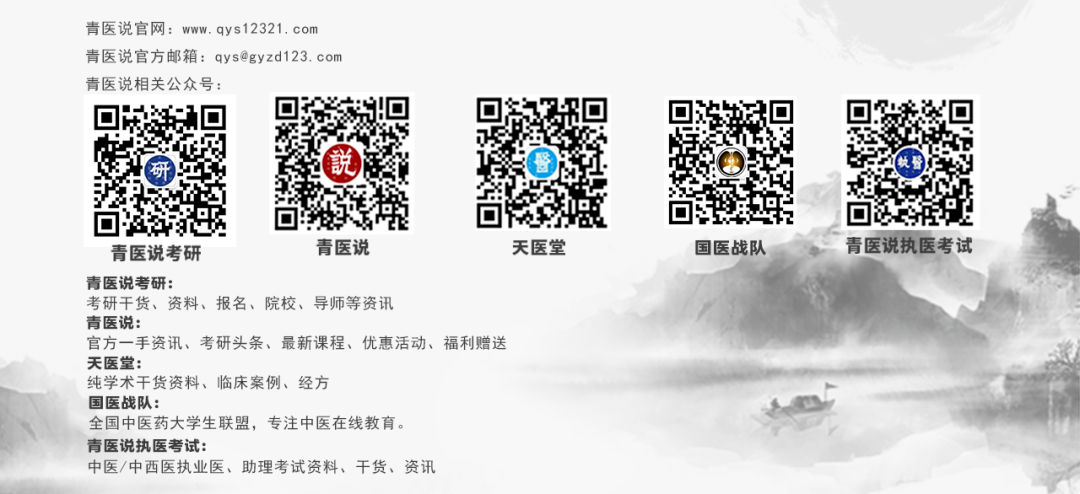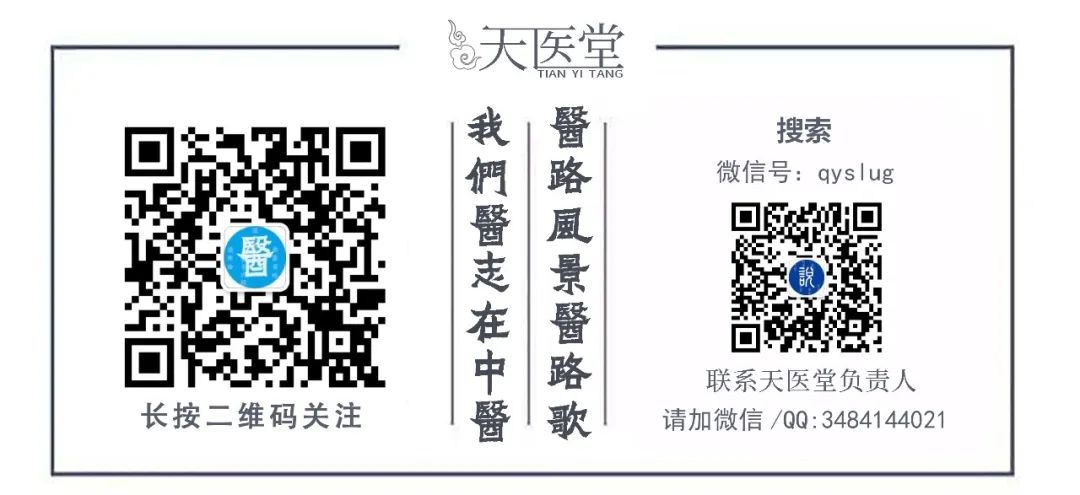
Introduction: Today we will learn from the experiences of three great TCM predecessors (Mr. Gong Shicheng, Mr. Li Hanqing, and Mr. Bai Qingzu) on the use of Fuzi.
 01
01
Experience of Gong Shicheng (“Clinical Experience with Medicinal Use”)
1. Warming Yang and Stopping Diarrhea
Fuzi (Aconite) warms and supplements the fire of the Mingmen (Gate of Life), restoring Yang from within.
For cases of Spleen and Kidney Yang deficiency with persistent diarrhea, when the effects of using the formula Lichong Decoction are not evident, replace the dried ginger in the decoction with roasted Fuzi slices to warm the Kidney and restore Yang, thus eliminating internal cold and dampness, making it easier to stop the diarrhea caused by deficiency cold.
Gong Shicheng commonly prescribes 10-12g of roasted Fuzi slices, first decocted, combined with Dangshen (Codonopsis), Jiao Baizhu (Fried Atractylodes), roasted ginger, and honey-fried licorice, emphasizing the dosage of Fuzi for treating the lower jiao (lower abdomen), as it is said, “Supplementing the Spleen is not as effective as supplementing the Kidney.”
2. Rescuing Yang from Collapse
Fuzi warms the five organs, restores Yang Qi, draws fire back to its source, and subdues false heat, and it must be used in a timely manner.
In any disease approaching the danger of sweating collapse, whether it is Yang collapse or Yin collapse, it is often difficult to make a definitive diagnosis. If Yin fluids are lost with sweat, using Fuzi would be like “relieving the path to save the feet.”
For Yang collapse: the body feels cool, sweat is thick and sticky like paste, the sweat is cold, the taste is bland, the body feels cold, the breath is weak, hands and feet are cold, and the tongue is moist, pulse is weak, or floating and empty. The medication should be warm, using 10-15g of Fuzi, combined with Hongshen (Red Ginseng), Shanyurou (Cornelian Cherry), dried ginger, and honey-fried licorice;
If there is both Yang collapse and signs of Yin collapse, one can use the Liuwu Huoyang Decoction—Fuzi combined with dried ginger, honey-fried licorice, ginseng, cooked Rehmannia, and Angelica, balancing hardness and softness to rescue from collapse.
3. Expelling Blood Bi from the Limbs
Raynaud’s syndrome, similar to “Blood Bi” or “Four Extremities” syndrome, presents with pale hands that can turn blue or dark purple, numbness and pain in the fingers, and coldness in the extremities, with severe winter conditions causing the fingertips to turn purple or waxy yellow, with increased pain.
When using Danggui Sini Decoction for treatment, if there is no effect, adding roasted Fuzi slices and Mu Xiang (Aucklandia) will yield significant results.
 02
02
Experience of Li Hanqing (“Clinical Practitioners of TCM – Li Hanqing”)
1. Fuzi Combined with Dahuang (Rhubarb)
Li Hanqing believes that biliary ascariasis is similar to TCM’s Ascaris pain.
There are two treatment methods: one is to kill the parasites, such as with Wumei Pill; the other is to change the environment of the pain, such as with licorice rice honey decoction, rice vinegar, etc.
In clinical observations of biliary ascariasis, the cold-heat mixed syndrome with more cold than heat is more common, and using Dahuang Fuzi Decoction often yields better results than Wumei Pill. Common dosages include 9g of Fuzi, 4.5g of Dahuang, and 4.5g of Xixin (Asarum).
2. Fuzi with Dried Ginger and Honey-Fried Licorice
Li Hanqing believes that from the perspective of rescuing Yang from collapse, it is highly effective for those with declining Yang of the heart, spleen, and kidney, and can be said to be the best medicine for rescuing Yang with Chinese herbs.
Fuzi combined with dried ginger and honey-fried licorice treats cold extremities due to Spleen and Kidney Yang deficiency, diarrhea with watery stools or incontinence, and weak pulse; if the tongue coating is yellow or accompanied by a bitter mouth, it indicates an excess of Yin against Yang, and cooling herbs like Huanglian (Coptis) or pig bile should be added; if there is also profuse sweating, it indicates Qi collapse, and ginseng should be added.
The main difference between the treatments of Yang collapse and collapse from sweating in ancient times was the presence or absence of diarrhea, and if sweating is profuse, ginseng must be used; if diarrhea is present, dried ginger must be added; if both sweating and diarrhea are present, both ginseng and dried ginger should be used together.
3. Fuzi Combined with Rougui (Cinnamon)
Li Hanqing believes that from the perspective of warming Yang and promoting diuresis, Fuzi itself does not have diuretic properties, but it has a good effect on edema due to Spleen and Kidney Yang deficiency or Heart and Kidney Yang deficiency.
If we look solely at the effects of promoting Yang and diuresis, Fuzi is not as effective as Rougui, but in treating edema, palpitations, cold extremities, and a weak pulse due to Spleen and Kidney Yang deficiency, or Heart and Kidney Yang deficiency, Fuzi is superior to Rougui.
If the edema is solely due to Kidney Yang deficiency, combining Rougui and Fuzi to tonify Kidney Yang often enhances the diuretic effect.
 03
03
Experience of Bai Qingzu (“Medical Garden English – Bai Qingzu”)
1. Fuzi Combined with Rougui
Dai Yuanli said: “With cinnamon, one can supplement the Mingmen.” Rougui is spicy, sweet, and very warm, being the Yang among Yangs, heavily entering the Kidney and Bladder, also warming and supplementing the spirit of the Mingmen.
Using Rougui and Fuzi together greatly enhances the warming and supplementing power of the Mingmen fire. Thus, it is suitable for treating symptoms of Kidney Yang deficiency, low back pain, coldness in the back, cold testicles, cold extremities, and edema with shortness of breath.
Clinically, using 15g of roasted Fuzi and 3g of Rougui, added to appropriate formulas, has immediate effects.
2. Fuzi Combined with Dried Ginger
Dried ginger is spicy and very warm, warming the middle and regulating the Spleen. For cases of cold in the Spleen and Stomach with vomiting and diarrhea, it is a good remedy. The Sini Decoction by Zhang Zhongjing uses ginger, Fuzi, and licorice together to treat Taiyin and Shaoyin diarrhea, cold extremities, and weak pulse.
If encountering sudden cold diarrhea or symptoms of imminent Yang collapse, remove licorice and use only roasted Fuzi and dried ginger to urgently save the situation.
For treating deficiency cold invading the Stomach, roasted Fuzi and dried ginger should be used together.
3. Fuzi Combined with Guizhi (Cinnamon Twig) and Baizhu (Atractylodes)
Guizhi is spicy and sweet, light in Qi, harmonizing the exterior and the Yingwei (nutritional and defensive Qi). For cold diseases in the extremities, this combination is essential. Baizhu is sweet and warm, strengthening the Spleen and Stomach, promoting the movement of dampness and phlegm. Using these three together effectively expels cold and overcomes dampness, warming the extremities, thus suitable for treating Bi pain due to mixed wind, cold, and dampness.
For treating Bi pain, Bai Qingzu often uses Zhang Zhongjing’s Fuzi Decoction with added Guizhi, where Fuzi is used in small doses of 12-15g, and can go up to 30-60g for rapid effects.
However, for Bi pain with internal heat or Yin deficiency with little blood, Fuzi should be avoided.
4. Fuzi Combined with Ren Shen (Ginseng) and Huang Qi (Astragalus)
Ren Shen and Huang Qi are excellent for tonifying Qi, suitable for those with insufficient Middle Qi presenting with fatigue, pallor, weakness, shortness of breath, and weak pulse.
However, for those who have been weak for a long time, relying solely on Ren Shen and Huang Qi may still feel insufficient, thus Fuzi should be added in small amounts to enhance the effects of Ren Shen and Huang Qi, with a dosage of 3-6g being appropriate.
5. Fuzi Combined with Danggui (Angelica)
Danggui is sweet and heavy, thus it can tonify blood, while being light and spicy, it can move blood, combining tonification with movement, Yin with Yang, and is a Qi herb among blood herbs.
Using Danggui and Fuzi together can tonify blood while having the function of warming and moving, suitable for treating menstrual irregularities due to blood deficiency and cold, as blood flows better when warmed.
6. Fuzi Combined with Lu Rong (Deer Antler Velvet)
Lu Rong is sweet and salty, warming, entering the Kidney, tonifying Yuan Yang, filling essence and marrow, and strengthening bones. The combination of Lu Rong and Fuzi warms the Mingmen fire and fills essence and marrow, effectively treating deficiency cold low back pain, inability to bend or stretch, weakness in the waist and knees, or impotence and nocturnal emissions.
Bai Qingzu often uses 3g of Lu Rong powdered and 15g of roasted Fuzi decocted and taken.
7. Fuzi Combined with Rou Dou Kou (Nutmeg)
Rou Dou Kou is spicy and aromatic, regulating the Spleen, drying dampness, expelling cold, and stopping diarrhea, effective for treating abdominal cold accumulation.
Using Fuzi and Rou Dou Kou together warms the Mingmen fire and dries Spleen dampness, suitable for treating deficiency cold diarrhea, morning diarrhea, and all symptoms of Spleen and Stomach deficiency cold, using 60g of Rou Dou Kou and 30g of Fuzi, powdered into pills, taking 9g each time, with excellent results.
8. Fuzi Combined with Ban Xia (Pinellia)
For those with Spleen and Stomach deficiency cold and vomiting, the combination of Fuzi and Ban Xia is effective, as Fuzi supplements fire to generate earth, while Ban Xia descends Qi to stop vomiting, leading to recovery from cold vomiting.
Bai Qingzu often uses 6g each of Fuzi and Ban Xia, with 3 slices of fresh ginger, decocted in water and taken warm for recovery.
9. Fuzi Combined with Yan Hu Suo (Corydalis) and Mu Xiang (Aucklandia)
Yan Hu Suo and Mu Xiang move Qi stagnation and relieve pain, and when combined with Fuzi, which is warming and good at moving, it is excellent for treating abdominal pain due to cold syndrome.
10. Fuzi Combined with La Cha (Tea)
The combination of Fuzi and La Cha is effective for treating excess Yin against Yang syndrome. Symptoms often include cold extremities, loose stools, clear urination, a weak pulse, and floating heat in the skin, thirst, dry mouth, and sore throat, indicating true internal cold and false external heat.
Bai Qingzu often uses Fuzi to warm the Mingmen fire and dispel true cold, while La Cha can clear the floating heat on the outside.Tea clears heat, Fuzi assists Yang, and the combination has the wonderful effect of balancing Yin and Yang.
Note: Specific treatments and medications should follow medical advice! This article is excerpted from “The First Essential Medicine for Warming Yang: Fuzi,” authored by Fu Wenlu, published by the People’s Health Publishing House, April 2010. This public account is used for academic exchange only; if there is any infringement, please contact us for deletion, and please indicate the source when reprinting.
Previous Recommendations
Can the formula for treating stomach diseases also treat rheumatoid arthritis? This formula is remarkably effective for treating knee joint effusion and rheumatic knee arthritis. Rheumatoid arthritis: Zhu Danxi, Yue Meizhong, and Zhu Jinzong all used the same formula — THE END —▶ Copyright Statement:1. Source: This article is excerpted from the China Traditional Chinese Medicine Newspaper, page 5, Author/ Bao Bingxi.
2. This platform aims to disseminate knowledge of TCM culture, and the copyright belongs to the relevant rights holders. We respect knowledge and labor; please retain copyright information when reprinting. If there are any improper uses, please feel free to contact us for negotiation. Contact (WeChat): 18701124859

 Every like you give, I take seriously as a sign of affection.
Every like you give, I take seriously as a sign of affection.



